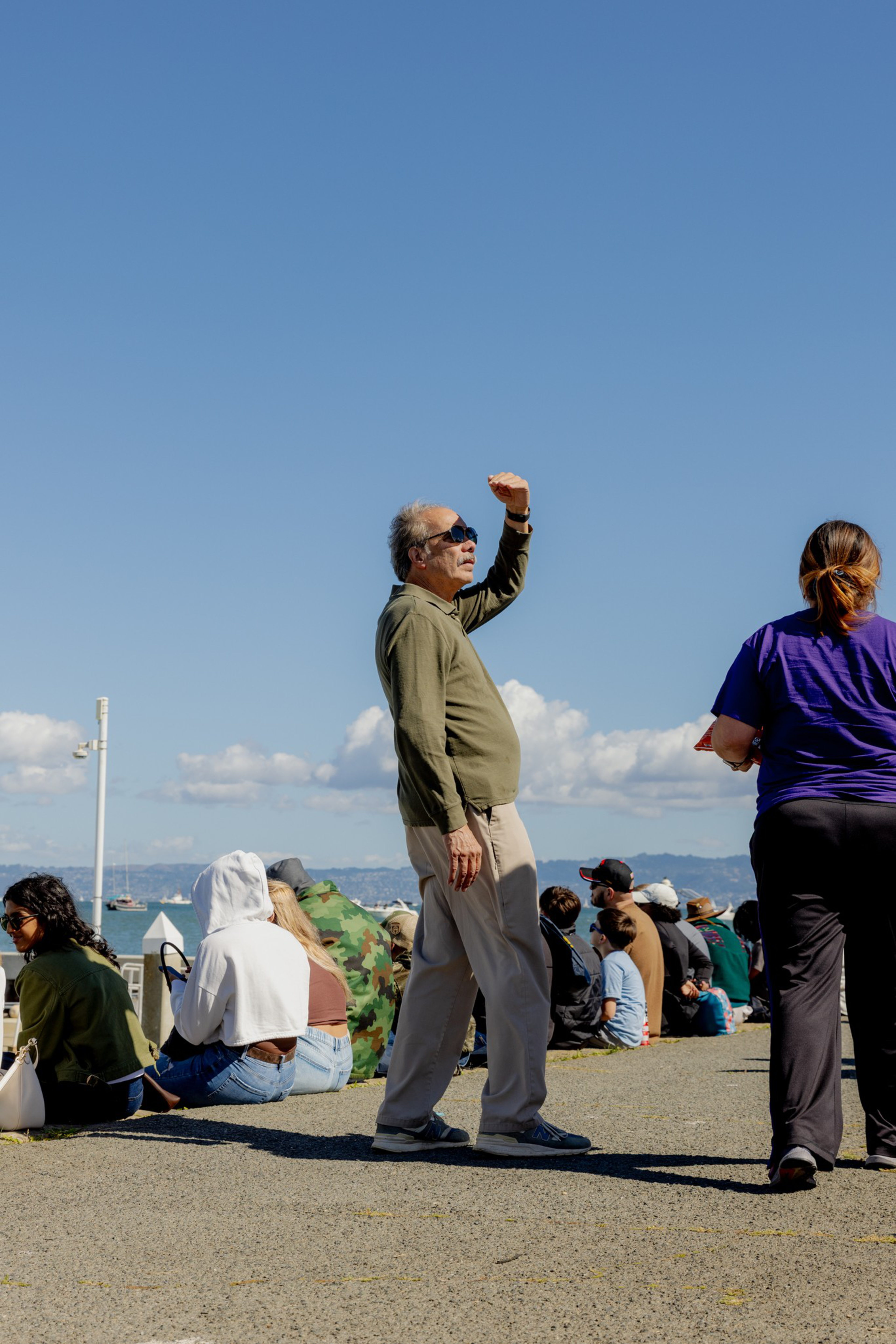Thousands gathered along San Francisco’s north coast for the government-shutdown edition of Fleet Week, which notably closed not with the U.S. Navy’s Blue Angels but rather the Canadian Royal Air Force Snowbirds.
To some, though, it didn’t really matter. Planes are planes.
“After a couple of beers, you can’t really tell the difference,” one attendee remarked.



Several people who spoke to The Standard said they were just as unbothered by the state of the country as the change in programming.
“The stock dropped 5%, so it’s a good time to buy,” one quipped.
Such was the general vibe of the event.
While the Blue Angels were missed — there were in fact tables worth of Blue Angels merchandise still being sold — things were more or less the same as in years past.
Families posted up with picnic blankets and chairs along the harbor, moving their eyes along with the planes and their mind-boggling formations.



In the background at the Marina Green, there was narration over a PA system from commentators, most of whom fawned over the pilots and their backstories like a mom at her kid’s first school dance.
“It looks easy but I assure you it is not!” said one of the announcers after two planes came within inches of striking one another.
It seemed that everyone there had been given the assignment to sell, sell, sell.
In between passes overhead, announcers read off copy encouraging people to participate in pastimes such as drinking beer or downloading a mobile app that makes it easier to keep track of pickleball scoring.
Even military recruiters got in on the action, as they practically begged people to try out their virtual reality games.
At two points in the show, a United Airlines Boeing 777 took part in its own sky dance.
“If you believe in love at first sight, you need to buckle your seatbelt,” one of the announcers said before the plane soared overhead. “Don’t be alarmed, be amazed.”


Bill Martin, a 67-year-old fifth-generation Californian, has been coming to Fleet Week since it started in 1981, and enjoys what he called its “silly” vibe.
Martin appreciates that the military, which is typically thought of as a largely conservative fixation, comes to the most liberal part of the country to put on the spectacle.
“People who don’t want to fund warbirds go, ‘Oh, yeah! Snowbirds!’” he said.
Martin noted that its an important time for California liberals to connect with “the middle of the country,” especially amid such a divisive time politically.
“I’m pretty liberal, but I love conservative people,” he said. “We’re the same country. We should figure out a way to communicate.”


